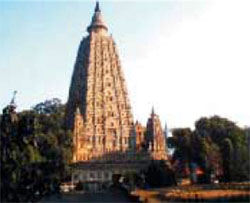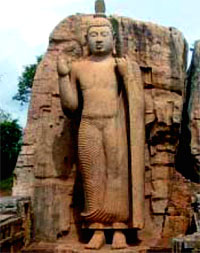Apr 15, 2025
Apr 15, 2025
 Buddhism is the strongest and most visible link between the two societies, a powerful thread that translates into deep emotional attachment for the Sinhalese for India. The fact that Lord Buddha attained enlightenment at Bodh Gaya in India well over 2,500 years ago makes the country the first choice of pilgrimage to Sri Lanka's majority community.
Buddhism is the strongest and most visible link between the two societies, a powerful thread that translates into deep emotional attachment for the Sinhalese for India. The fact that Lord Buddha attained enlightenment at Bodh Gaya in India well over 2,500 years ago makes the country the first choice of pilgrimage to Sri Lanka's majority community. "Sri Lankans see India as the Land of Buddha," explains the scholarly Romesh Jayasinghe, a Sinhalese and Colombo's top envoy in New Delhi. "The Hindu symbols are also profound. Sri Lankans in general see India as a factor that so profoundly influenced their nation."
"Sri Lankans see India as the Land of Buddha," explains the scholarly Romesh Jayasinghe, a Sinhalese and Colombo's top envoy in New Delhi. "The Hindu symbols are also profound. Sri Lankans in general see India as a factor that so profoundly influenced their nation."
30-Mar-2007
More by : M. R. Narayan Swamy